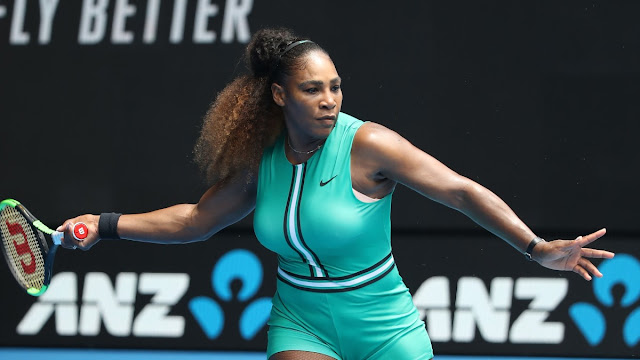Serena Williams and the Ongoing Battle of the Sexes
(Originally published on sommetdame.com on September 14, 2018)
In the press conference following the match, Serena was asked how she would explain the events of the day to her daughter. Certainly someday her child will happen upon what is already the infamous video of legendary Serena Williams calling umpire Carlos Ramos a “thief” and slamming her tennis racket on the court, snapping it in half. Williams lost the title, received a $17,000 fine, and endless criticism and mockery via the media as a result of her anger. Tennis is by no means a peaceful sport. Watch for one point and you will hear the athletes letting out powerful grunts as they wield their rackets with all their might, trying to hit with enough force and precision so their opponent cannot return the volley. And at the U.S. Open in particular, the stakes are high. Williams should know- she has won twenty-three Grand Slam Singles. During this match, however, Ramos accused her of receiving signals from her coach, which she vehemently denied. She was cited for three code violations. When asked about her experience with Ramos as an umpire, Williams said that “he ha(d) always been a great umpire”. Yet his rulings on her outburst was unquestionably harsh and biased. In the press conference, Williams made a point of saying that male tennis players have said worse things to umpires without punishment.
The idea of double standards in sports, especially tennis, has been an ever present yet ever evolving issue. One of the most famous matches in tennis history was the “Battle of the Sexes” in 1973 when twenty-nine year old Billie Jean King defeated seasoned champion Bobbie Riggs. The twelve time Grand Slam Singles champion tweeted out her support of Williams’ anger: “When a woman is emotional, she’s ‘hysterical’ and she’s penalized for it. When a man does the same, he’s ‘outspoken’ & and there are no repercussions. Thank you @serenawilliams for calling out this double standard. More voices are needed to do the same.”
Serena Williams’ place in the spotlight as an enormous and enduring talent has elevated her status from athlete to celebrity. For years, the media has criticized her body for being too muscular, and judged her for posing in magazines. Williams had previously made headlines in late August when the French Open implemented a dress code that essentially banned her from wearing her catsuit. The president of the French Tennis Federation, Bernard Giudicelli said in regards to Williams attire at Roland Garros, “It will no longer be accepted. One must respect the game and the place.”
Just after the U.S. Open incident, an Australian newspaper published a caricature depicting Williams with stereotypically exaggerated features- a big nose, big lips, and wild hair. She is envisioned as a big, whiny baby, not a skilled athlete who was just punished for taking a stand against an unfair ruling. The cartoon was quickly denounced for its racist imagery, while the cartoonist claimed he was simply drawing what he witnessed.
The backlash brought into question whether or not a white woman or a man would have received the same treatment. A male tennis player has never been prevented from wearing something that is considered too revealing, nor has a male tennis player ever been cited for taking their shirt off, as Alize Cornet was. Williams’ status as a powerful black woman has made her vulnerable to persistent judgment surrounding her character and behavior.
Serena Williams has a right to be angry. Imagine if she had not fought the citation.
Williams recognizes that her loss can and must mean something. She stated that, “I’m here fighting for women’s rights and women’s equality...I just feel like the fact that I have to go through this is just an example for the next person that has emotions, and that want to express themselves, and want to be a strong woman...They’re going to be allowed to do that because of today. Maybe it didn’t work out for me, but it’s going to work out for the next person.”




Comments
Post a Comment